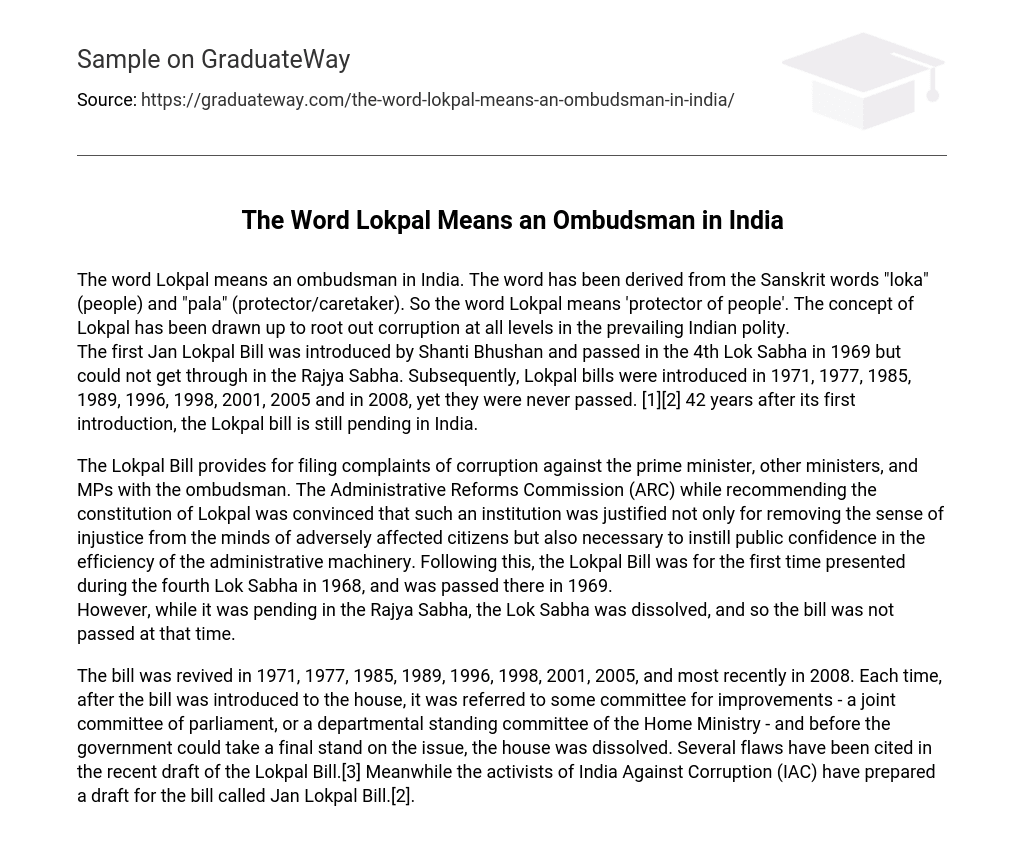The word Lokpal means an ombudsman in India. The word has been derived from the Sanskrit words “loka” (people) and “pala” (protector/caretaker). So the word Lokpal means ‘protector of people’. The concept of Lokpal has been drawn up to root out corruption at all levels in the prevailing Indian polity.
The first Jan Lokpal Bill was introduced by Shanti Bhushan and passed in the 4th Lok Sabha in 1969 but could not get through in the Rajya Sabha. Subsequently, Lokpal bills were introduced in 1971, 1977, 1985, 1989, 1996, 1998, 2001, 2005 and in 2008, yet they were never passed. [1][2] 42 years after its first introduction, the Lokpal bill is still pending in India.
The Lokpal Bill provides for filing complaints of corruption against the prime minister, other ministers, and MPs with the ombudsman. The Administrative Reforms Commission (ARC) while recommending the constitution of Lokpal was convinced that such an institution was justified not only for removing the sense of injustice from the minds of adversely affected citizens but also necessary to instill public confidence in the efficiency of the administrative machinery. Following this, the Lokpal Bill was for the first time presented during the fourth Lok Sabha in 1968, and was passed there in 1969.
However, while it was pending in the Rajya Sabha, the Lok Sabha was dissolved, and so the bill was not passed at that time.
The bill was revived in 1971, 1977, 1985, 1989, 1996, 1998, 2001, 2005, and most recently in 2008. Each time, after the bill was introduced to the house, it was referred to some committee for improvements – a joint committee of parliament, or a departmental standing committee of the Home Ministry – and before the government could take a final stand on the issue, the house was dissolved. Several flaws have been cited in the recent draft of the Lokpal Bill.[3] Meanwhile the activists of India Against Corruption (IAC) have prepared a draft for the bill called Jan Lokpal Bill.[2].





